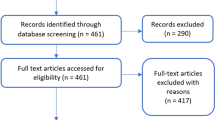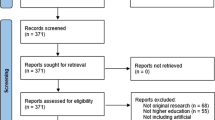Abstract
This paper examines the role of adaptive student modeling in cognitive tutor research and dissemination. Cognitive tutorsTM are problem solving environments constructed around cognitive models of the knowledge students are acquiring. Over the past decade we in the Pittsburgh Advanced Cognitive Tutor (PACT) Center at Carnegie Mellon have been employing a cognitive programming tutor in university-based teaching and research, while simultaneously developing cognitive mathematics tutors that are currently in use in about 150 schools in 14 states. This paper examines adaptive student modeling issues in these two contexts. We examine the role of student modeling in making the transition from the research lab to widespread classroom use, describe our university-based efforts to empirically validate student modeling in the ACT Programming Tutor, and conclude with a description of the key role that student modeling plays in formative evaluations of the Cognitive Algebra II Tutor.
Similar content being viewed by others
References
Anderson, J. R.: 1983, The Architecture of Cognition. Cambridge, MA: Harvard University Press.
Anderson, J. R.: 1990, The Adaptive Character of Thought. Mahwah, NJ: Lawrence Erlbaum Associates.
Anderson, J. R.: 1993, Rules of the Mind. Mahwah, NJ: Lawrence Erlbaum Associates.
Anderson, J. R., Boyle, C. F. and Yost, G.: 1986, The geometry tutor. Journal of Mathematical Behavior, 5, 5-19.
Anderson, J. R., Conrad, F. G. and Corbett, A. T.: 1989, Skill acquisition and the LISP Tutor. Cognitive Science, 13, 467-505.
Anderson, J. R., Corbett, A. T., Koedinger, K. R. and Pelletier, R.: 1995, Cognitive tutors: Lessons learned. Journal of the Learning Sciences, 4, 167-207.
Anderson, J. R. and Lebiere, C.: 1998, The Atomic Components of Thought. Mahwah, NJ: Lawrence Erlbaum Associates.
Atkinson, R. C.: 1972, Optimizing the learning of a second-language vocabulary. Journal of Experimental Psychology, 96, 124-129.
Billsus, D. and Pazzani, M. J.: 2000, User Modeling for Adaptive News Access. User Modeling and User-adapted Interaction, 10, 147-180 (this issue).
Block, J. H. and Burns, R. B.: 1976, Mastery learning. In: L. S. Shulman (ed.) Review of Research in Education, Volume 4. Itasca, IL: F. E. Peacock (AERA).
Corbett, A. T. and Anderson, J. R.: 1995, Knowledge tracing: Modeling the acquisition of procedural knowledge. User Modeling and User-adapted Interaction, 4, 253-278.
Corbett, A. T. and Bhatnagar, A.: 1997, Student modeling in the ACT Programming Tutor: Adjusting a procedural learning model with declarative knowledge. Proceedings of the Sixth International Conference on User Modeling. New York: Springer-Verlag Wein.
Corbett, A. T. and Knapp, S.: 1996, Plan scaffolding: Impact on the process and product of learning. In: C. Frasson, G. Gauthier, and A. Lesgold, (eds.) Intelligent Tutoring Systems: Third International Conference, ITS '96. New York: Springer.
Corbett, A. T., Koedinger, K. R. and Anderson, J. R: 1999, Intelligent Computer Tutors: Out of the research lab and into the classroom. Paper presented at the annual meeting of the American Educational Research Association, Montreal, CA.
Corbett, A. T., Koedinger, K. R. and Hadley, W. S.: in press. Cognitive Tutors: From the research classroom to all classrooms. In: P. Goodman (ed.) Technology Enhanced Learning: Opportunities for Change. Mahwah, NJ: Lawrence Erlbaum Associates.
Corbett, A. T. and Trask, H. J.: 2000, Instructional Interventions in computer-based tutoring: Differential impact on learning time and accuracy. In: T. Turner, G. Szwillus, M. Czerwinski and F. Paterno (eds.), CHI 2000 Conference Proceedings.
Corbett, A. T., Trask, H. J. Scarpinatto, K.C. and Hadley, W.S.: 1998, A formative evaluation of the PACT Algebra II Tutor: Support for simple hierarchical reasoning. In: B. Goettl, H. Halff, C. Refield and V. Shute (eds.) Intelligent Tutoring Systems: Fourth International Conference, ITS '98. New York: Springer.
Fink, J. and Kobsa, A.: 2000, A review and analysis of commercial user modeling servers for personalization on the World Wide Web. User Modeling and User-adapted Interaction, 10, 209-249 (this issue).
Kieras, D. E. and Bovair, S.: 1986, The acquisition of procedures from text: A production system analysis of transfer of training. Journal of Memory and Language, 25, 507-524.
Koedinger, K. R. and Anderson J. R.: 1993, Effective use of intelligent software in high school math classrooms. In: P. Brna, S. Ohlsson and H. Pain (eds.) Proceedings of AIED '93 World Conference on Artificial Intelligence in Education. Charlottesville, VA: Association for the Advancement of Computing in Education.
Koedinger, K. R., Anderson, J. R. Hadley, W.H. and Mark, M.A.: 1997, Intelligent tutoring goes to school in the big city. International Journal of Artificial Intelligence in Education, 8, 30-43.
Koedinger, K. R. and Cross, K.: 1999, Tutoring answer-explanation fosters learning with understanding. In: S. P. Lajoie and M. Vivet (eds.) Artificial Intelligence in Education, Open Learning Environments: New Computational Technologies to Support Learning, Exploration, and Collaboration, Proceedings of AIED-99. Amsterdam: IOS Press.
Kulik, C. C., Kulik, J. A. and Bangert-Drowns, R. L.: 1990, Effectiveness of mastery learning programs: A meta-analysis. Review of Educational Research, 60, 265-299.
Kulik, J. A., Kulik, C. C. and Cohen, P.A.: 1979, A meta-analysis of outcomes studies of Keller's Personalized System of Instruction. American Psychologist, 34, 307-318.
Linton, F. and Schaefer, H.: 2000, Recommender Systems for Learning: Building User and Expert Models by Long-Term Observation of Application Use. User Modeling and User-adapted Interaction 10, 181-207 (this issue).
National Council of Teachers of Mathematics (1989). Curriculum and Evaluation Standards for School Mathematics. Reston, VA: The Council.
Newell, A.: 1990, Unified Theories of Cognition. Cambridge, MA: Harvard University Press.
Reed, S. K., Dempster, A. and Ettinger, M.: 1985, Usefulness of analogous solutions for solving algebra word problems. Journal of Experimental Psychology: Learning, Memory and Cognition, 11, 106-125.
Schofield, J. W.: 1995, Computers and Classroom Culture. Cambridge, England: Cambridge University Press.
Sleeman, D., and Brown, J. S.: 1982, Intelligent Tutoring Systems. New York: Academic Press.
Strachan, L., Anderson, J. Sneesby, M. and Evans, M.: 2000, Minimalist User Modelling in a Complex Commercial Software System. User Modeling and User-adapted Interaction 10, 109-145 (this issue).
U.S. Department of Education, 1998. National Center for Education Statistics, Pursuing excellence: A study of U.S. twelfth-grade mathematics and science achievement in international context, NCES 98-049. Washington, D.C.: U.S. Government Printing Office.
Author information
Authors and Affiliations
Rights and permissions
About this article
Cite this article
Corbett, A., McLaughlin, M. & Scarpinatto, K.C. Modeling Student Knowledge: Cognitive Tutors in High School and College. User Modeling and User-Adapted Interaction 10, 81–108 (2000). https://doi.org/10.1023/A:1026505626690
Issue Date:
DOI: https://doi.org/10.1023/A:1026505626690




